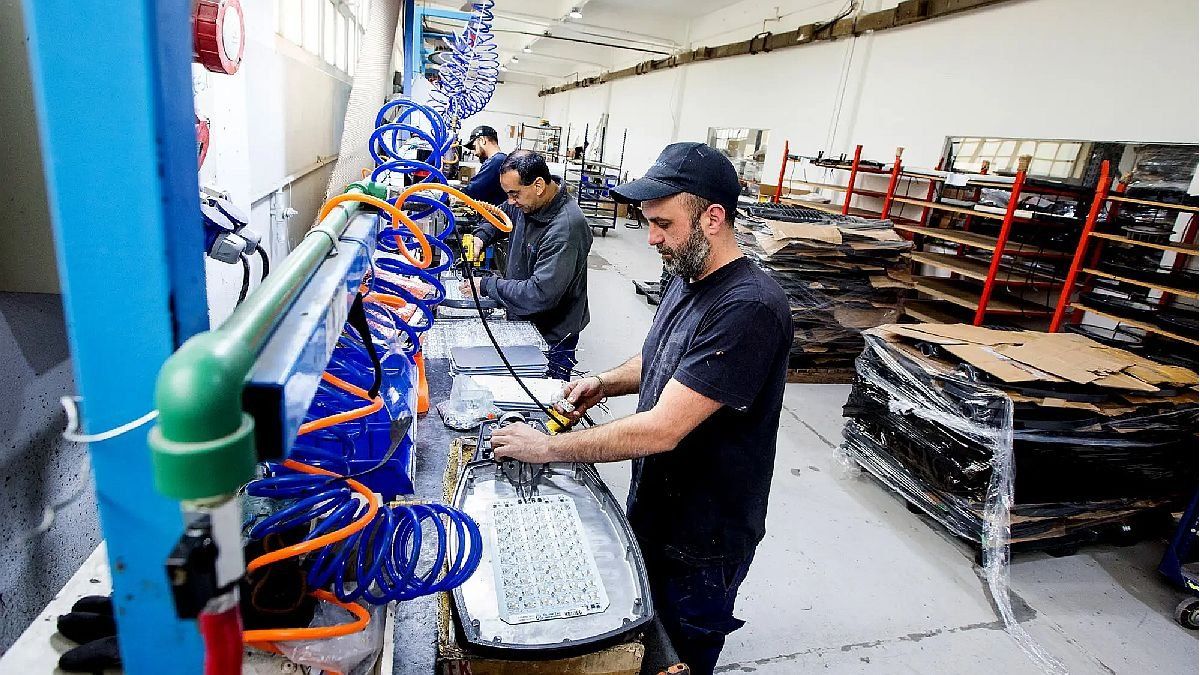The local economy goes through a remake of the experience of Cambiemos governmentalthough with some scenic variants and policy intensity that, despite what many consulting firms project, will prevent it from recovering the level of activity after the current recession, as had happened since the end of 2016.
The administration of Javier Milei employ a same set of measurements: a sharp devaluation followed by an accelerated exchange rate appreciation, disproportionate increases in rates, elimination of the government intervention in the setting of prices in sensitive sectors such as food, fuel and medicines, contraction of public works and liberation of controls on imports.
The impact is now going in the same direction with more depth and speed due to the greater abruptness in the use of all those adjustment tools. The result can be divided into two opposing spheres. On the one hand, a great deterioration in the purchasing power of the population, greater distributive inequality and a decrease in productive capacities due to suspensions and destruction of jobs. The other side is the twin surpluses (commercial and fiscal), the inflationary slowdown after its peak last December and the accumulation of reserves that generate fertile ground for financial valuation businesses, also encouraged by the maintenance of an official depreciation rate. of the peso below interest rates.
However, regarding the initial cycle of the Macri government, in addition to the insignificant gradualness of the measures appliedthere are two current circumstances of great importance that act in markedly opposite directions, one in favor and one against.
The positive is the agile recovery of agriculture, after the worst drought in the history of our country. The Rosario Stock Exchange expects total grain production to grow by 65% in 2024 in relation to the poor record of 2023. Unfortunately, the general decline in international grain prices, around 25% in the case of soybeans, calms the boom. The result would be an increase of close to 10 billion dollars in agricultural exports. In a scenario of depressed demand and, therefore, of imports (consumptions in a state of depression are of essential goods and services that are national, few imported or have a low foreign component in their manufacturing), added to the rise The projected projection of these external sales – they represent 14% of the country’s average annual exports for the last five years – suggests that this year a significant trade surplus will once again be recorded, as between 2019 and 2022.
Now, the negative circumstance compared to Macri’s management of his first two years, causes a greater impact effect that will end up frustrating the expectation of a V-shaped recovery, as predicted, for example, by Econviews and Abeceb for May or June of this year.
It’s about the manifests impossibility of compulsively accessing international credit markets. This factor is fundamental in models that ignore the productive and social needs of the country. In the Macri era, it had involved a net external debt of more than 100,000 million dollars in just two years and had generated a formidable exchange rate appreciation that boosted commerce, the consumption of durable goods, such as cars and electronic items, tourism, business real estate, finance and construction, among other areas.
That lowering of the dollar added to the liberalization of the exchange market had allowed Cambiemos to exhibit a significant recovery, but it was not sustainable due to its enormous dependence on the inflow of speculative capital. When foreign credit was cut off, devaluation and recession were inevitable.
On the other hand, the current exchange rate appreciation process is weak and will be insufficient to promote a reactivation because there are no signs that it will have massive inflows of external capital as in the previous Caputo cycle. Furthermore, it occurs in a much more unstable scenario, under growing political weakness and erratic management full of improvisation. The revaluation of the peso in recent weeks, despite starting from a considerably higher base of the dollar price than at the beginning of the Macri government, is even more fragile, given that its basis of support is only over-adjustment. The invisible hand of the market without external help does not make any growth process viable.
He relative pricing scheme, based on cheap labor, with rising rates and reaching the levels of the region, without access to credit or with very high costs, will not encourage investments and productive activity. The depression will accentuate the fall in tax collection and the external trade surplus will be used to pay the external debt, limiting the accumulation of reserves. The contraction in consumption will also cause the rising fixed cost structure of companies to be prorated into lower volumes of production and sales, making companies without financial support unviable. A model that harms the generation of wealth and worsens distribution has no chance of prospering.
The narrative of those who try to generate hope in a extended torpor scenario, It will lose credibility and followers and social conflict will continue to rise. These opinion makers who previously identified “green shoots” omitting that Argentina was the country that incurred the most debt in the world, promote models that proclaim the reduction of state participation in the economy. Today, with the promise that a drop in inflation will encourage activity and the arrival of investments, they proclaim that the nation requires the sacrifice of the great majorities.
In reality, the purpose seems to be to combat the organization of workers, SME industrial capacity, public companies with an impact on the functioning of markets and the promotion of education, science and technology and thus achieving a country free from the abusive exploitation of its natural resources in favor of the growth needs of the great Western power centers. The big difference that makes the process much more painful today than with Macri is that There is no money (borrowed dollars) to temporarily sweeten the destruction of our country’s productive and sovereign capacities.
Source: Ambito




